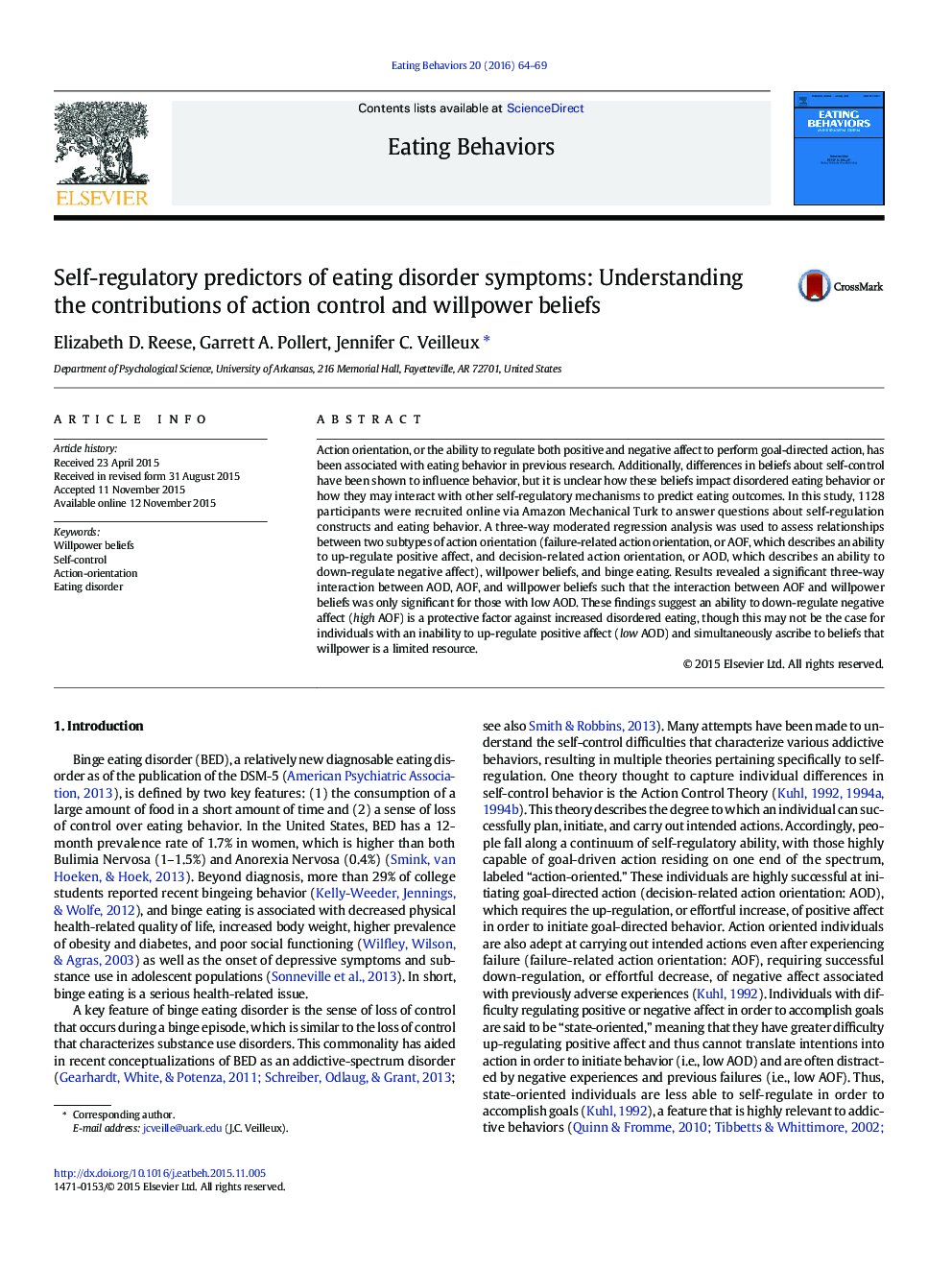| کد مقاله | کد نشریه | سال انتشار | مقاله انگلیسی | نسخه تمام متن |
|---|---|---|---|---|
| 906272 | 1472883 | 2016 | 6 صفحه PDF | دانلود رایگان |
• We assessed willpower beliefs, action orientation and binge eating in 1128 people.
• We found a 3-way interaction between beliefs and two aspects of action orientation.
• Down regulating negative affect appears to be protective against binge eating.
• However, people with beliefs that willpower is limited may not reap these benefits.
Action orientation, or the ability to regulate both positive and negative affect to perform goal-directed action, has been associated with eating behavior in previous research. Additionally, differences in beliefs about self-control have been shown to influence behavior, but it is unclear how these beliefs impact disordered eating behavior or how they may interact with other self-regulatory mechanisms to predict eating outcomes. In this study, 1128 participants were recruited online via Amazon Mechanical Turk to answer questions about self-regulation constructs and eating behavior. A three-way moderated regression analysis was used to assess relationships between two subtypes of action orientation (failure-related action orientation, or AOF, which describes an ability to up-regulate positive affect, and decision-related action orientation, or AOD, which describes an ability to down-regulate negative affect), willpower beliefs, and binge eating. Results revealed a significant three-way interaction between AOD, AOF, and willpower beliefs such that the interaction between AOF and willpower beliefs was only significant for those with low AOD. These findings suggest an ability to down-regulate negative affect (high AOF) is a protective factor against increased disordered eating, though this may not be the case for individuals with an inability to up-regulate positive affect (low AOD) and simultaneously ascribe to beliefs that willpower is a limited resource.
Journal: Eating Behaviors - Volume 20, January 2016, Pages 64–69
